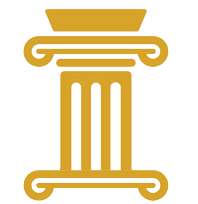P.O.161-162/2567 Revenue: New Tax Rules for Foreign-Sourced Income
Starting January 1, 2024, Thailand will implement new tax rules for foreign-sourced income under the directives
P.O.161-162/2567. These changes, though not new laws passed by the parliament, represent a shift in the Thai Revenue Department’s enforcement policy aimed at curbing tax avoidance practices.
Key Points of the New Rules:
1. Taxation on Foreign-Sourced Income:
– Thai residents, including expatriates living in Thailand, will be subject to taxation on income sourced from abroad if it is brought into Thailand within the same tax year it is earned.
– This change is particularly significant for high-net-worth individuals and those who have been leveraging offshore structures to minimize tax liabilities.
2. Clarification for Typical Expats:
– The new rules primarily target wealthy individuals and entities with substantial overseas earnings. Typical expatriates with pensions or social security benefits already taxed in their home countries may not be significantly impacted.
– The Thai Revenue Department is expected to focus on cases involving substantial income and potential tax avoidance rather than everyday financial activities of most expats.
3. Double Taxation Treaties:
– Thailand has double taxation agreements with numerous countries. These treaties can help prevent double taxation on the same income. However, the specifics of each treaty can vary, and expats are advised to consult our team of tax professionals to understand their obligations fully.
4. Tax Registration:
– Expats are required to register for a Thai tax identification number. The princilple will anouce it again.
5. Compliance and Documentation:
– Those affected by the new rules will need to provide proof that their foreign-sourced income has been taxed in another jurisdiction. This documentation may include tax returns or official statements from the foreign revenue service.
Practical Implications:
– Financial Planning: Expats and foreign investors should reassess their financial and tax planning strategies. Consulting with our team of tax experts familiar with both Thai and international tax laws is crucial to ensure compliance and optimize tax efficiency.
– Future Adjustments: As discussions between accountancy firms and the Thai Revenue Department continue, further clarifications and adjustments to the rules may emerge. Keeping abreast of these developments will be essential for affected individuals and businesses.
Conclusion:
The new tax rules under P.O.161-162/2567 aim to enhance Thailand’s tax revenue by addressing loopholes in foreign-sourced income taxation. While typical expats with straightforward income sources might experience minimal impact, high-net-worth individuals and those engaged in complex financial arrangements should seek professional advice to navigate these changes effectively.
For more detailed information and ongoing updates, visit [Pattaya Mail](https://www.pattayamail.com/latestnews/news/new-tax-rules-for-foreign-sourced-income-464735).
—
This web page provides comprehensive details about the new tax rules and practical advice for those affected.

